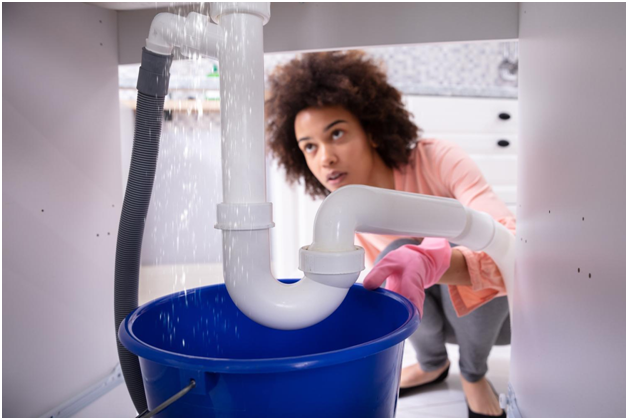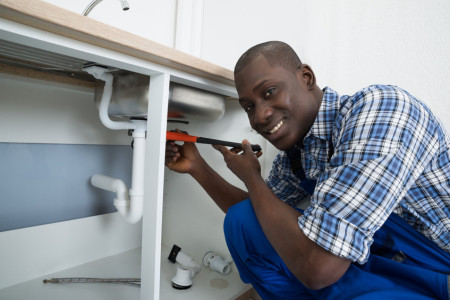What are your ideas about Expert Tips for Emergency Plumbing Repairs?

Pipes emergency situations can strike at any moment, triggering anxiety and prospective damage to your home. Whether it's a burst pipe, a clogged drain, or a leaky tap, recognizing just how to handle the circumstance up until a professional plumbing shows up can conserve you from additional difficulties. This short article gives important emergency situation plumbing ideas to aid you reduce damages and regain control during a pipes crisis.
Shut off the Water
The initial step in any kind of plumbing emergency is to shut down the water supply. For localized concerns, such as a leaking faucet or commode, shut off the valve near the component. When it comes to a major leak or ruptured pipe, locate your home's major water shut-off valve and turn it off quickly. Understanding the location of these shutoffs ahead of time can save useful time during an emergency situation.
Turn off Your Water Heater
In particular emergencies, such as a ruptured pipe, it's smart to shut off your hot water heater. This stops getting too hot or damage to the system when water quits flowing. Turn off the power supply to the water heater (electrical or gas) and let it cool to avoid possible risks.
Temporarily Quit a Burst Pipeline
A burst pipe can bring about significant water damages in minutes. To minimize the problem:
- Clamp or Cover the Pipe: Make use of a pipe clamp, rubber, or air duct tape as a short-term seal.
- Draw Away Water Flow: Ideally, divert the water right into a bucket or basin to restrict damage to surrounding locations.
- Keep the Location Dry: Use towels or a wet/dry vacuum cleaner to remove standing water.
- Call an expert plumbing technician quickly to address the issue completely.
Have an Emergency Plumbing Set
Prepare a standard pipes emergency set to manage small problems properly. Your package should include: - Flexible wrench
- Plumbing technician's tape
- Pipeline secures
- Towels and rags
- A bettor
- Epoxy putty
- Pail.
- Having these devices on hand can make a substantial difference in your ability to manage emergencies.
Unclog Drains Safely.
A blocked drain can be a discouraging and untidy problem. Right here's just how to tackle it:. - Use a Plunger: For sinks or commodes, a bettor can often remove small clogs. Guarantee you use the appropriate kind of bettor for the component.
- Hot Water and Recipe Soap: For grease-related obstructions, put a combination of warm water and recipe soap away to separate the oil.
- Avoid Chemical Drainpipe Cleansers: While appealing, chemical cleansers can trigger more damage than great, particularly to older pipes.
- If these methods don't work, avoid making use of too much pressure, as it might aggravate the obstruction.
Handle Overflowing Toilets.
An overflowing toilet can cause immediate chaos. Below's what you need to do:. - Quit the Water Circulation: Eliminate the tank lid and press down on the flapper shutoff to quit water from going into the bowl. Turn off the water supply to the commode if needed.
- Dive Carefully: Use a commode bettor to remove the blockage, yet prevent aggressive plunging, which can trigger splashing or more damage.
- Contain the Spill: Usage towels or a mop to tidy up water swiftly to prevent floor covering damage.
Address Small Leakages with Temporary Solutions.
Little leakages can swiftly become substantial problems if left uncontrolled. Utilize these temporary repairs until specialist help gets here:.
- Pipe Tape or Epoxy Putty: Use waterproof tape or epoxy putty to momentarily seal the leakage.
- Rubber and Clamp Method: Cover a piece of rubber or an old internal tube around the leak and safeguard it with a hose clamp or air duct tape.
- Buckets or Towels: Location buckets under the leakage to contain water and stop damages to flooring or furnishings.
- While these fixes aren't permanent, they can aid reduce water loss and damages.
Manage Frozen Pipes Very Carefully.
In colder environments, frozen pipelines are a common emergency situation. If you think a frozen pipeline:. - Shut off the Water: Shut down the primary water to avoid a burst pipeline.
- Thaw Gradually: Use a hairdryer, hot pad, or cozy towels to thaw the pipe progressively. Prevent open fires or extreme warmth, as these can damage the pipeline.
- Evaluate for Leaks: Once the pipeline is thawed, look for splits or leaks prior to turning the water back on.
Know When to Call an Expert.
While quick fixes can aid temporarily, specific pipes problems call for immediate expert focus. Call a plumbing if:.
- A ruptured pipeline triggers substantial flooding.
- Drains pipes or toilets stay clogged up despite your initiatives.
- You see persistent leaks or water stress concerns.
- Your water heater is dripping or malfunctioning.
- Without delay contacting an expert makes certain the issue is settled appropriately and prevents additional difficulties.
Prevent Further Damage.
Taking fast activity to decrease damage can save you time and money in the future. Below's just how:. - Move Valuables: Remove furniture, electronic devices, and various other things from the damaged area.
- Use Sandbags: For flooding situations, location sandbags around the location to reroute water.
- Shut down Electricity: If water has reached electrical outlets or home appliances, shut off the electrical energy to stop shocks or fires.
Final thought.
Pipes emergency situations can be frustrating, but with the best understanding and devices, you can take care of the situation efficiently until assistance shows up. By switching off the water, resolving small leaks, and using short-term repairs, you can lessen damages and maintain your home safe. Bear in mind, these pointers are short-lived remedies; constantly consult a licensed plumbing to deal with the root cause of the issue. Preparation and quick thinking are your finest allies in any type of plumbing emergency.
Expert Tips for Emergency Plumbing Repairs
Plumbing emergencies can be incredibly stressful and inconvenient. Whether it’s a burst pipe, a clogged drain, or a leaky faucet, these common plumbing emergencies need immediate attention to prevent further damage to your home. But before you panic, it’s important to understand the basics of plumbing repairs and the steps you can take to address these emergencies. In this article, we will share some expert tips to help you navigate through these situations and minimize potential water damage.
Identifying Common Plumbing Emergencies
- Leaky pipes and faucets
- Clogged drains and toilets
- Burst pipes
- Low water pressure
- Water heater problems
Essential Tools for Plumbing Repairs
- Plunger: Useful for unclogging toilets and drains
- Adjustable wrench: Needed for tightening or loosening nuts and bolts
- Pipe wrench: Ideal for gripping and turning pipes
- Tape measure: Necessary for accurate pipe measurements
- Plumber’s tape: Helps create watertight seals
Understanding Emergency Plumbing Services
Emergency plumbing services are designed to provide immediate assistance for unexpected plumbing issues that can cause significant damage to your home, business, or health. These services are typically available 24/7 and are staffed by experienced plumbers who can quickly diagnose and repair a wide range of plumbing problems.
When a plumbing emergency strikes, time is of the essence. Whether it’s a burst pipe flooding your basement or a gas leak posing a serious risk, emergency plumbing services ensure that help is just a phone call away. These professionals are equipped with the tools and expertise to handle any situation, minimizing damage and restoring your plumbing system to proper working order.
What Constitutes a Plumbing Emergency?
- Burst pipes or water supply lines: These can cause extensive water damage and need immediate repair to prevent flooding.
- Gas leaks or suspected gas leaks: Gas leaks are extremely dangerous and require prompt attention to avoid potential explosions or health hazards.
- Sewer backups or overflows: These can lead to unsanitary conditions and significant property damage.
- Clogged drains or toilets causing water to overflow: Overflowing water can damage floors, walls, and other structures.
- Leaks or water damage causing structural damage: Persistent leaks can weaken the structural integrity of your home or business.
- No hot water or heating: A lack of hot water can be more than an inconvenience, especially in colder months.
Common Causes of Plumbing Emergencies
- Aging or corroded pipes: Over time, pipes can deteriorate, leading to leaks or bursts.
- Improperly installed or maintained plumbing fixtures: Faulty installations or lack of maintenance can result in unexpected failures.
- Tree roots or other debris infiltrating your sewer line: Roots can grow into pipes, causing blockages and backups.
- Frozen pipes or water supply lines: In colder climates, pipes can freeze and burst, leading to significant water damage.
- High water pressure or sudden changes in water pressure: Excessive pressure can strain pipes and fixtures, causing them to fail.
- Natural disasters such as floods or earthquakes: These events can disrupt your plumbing system and cause severe damage.
Steps to Minimize Water Damage
- Locate the water shut-off valve: Knowing where the valve is can help you quickly cut off the water supply to the affected area.
- Turn off the water heater: If there’s a risk of water coming into contact with the heating element, make sure to turn off the water heater to avoid potential accidents.
- Open faucets and drain pipes: By opening faucets and drain pipes, you can relieve pressure and empty any standing water.
- Collect and contain water: Use towels, buckets, or bins to collect water and prevent it from spreading to other areas of your home.
https://leecountyplumbingandwellservice.com/expert-tips-for-emergency-plumbing-repairs/

I am very interested in What to Do While Waiting for an Emergency Plumber and I really hope you enjoyed the new blog post. So long as you enjoyed reading our post please do not forget to share it. Thanks a lot for your time spent reading it.
Book
Comments on “Essential Advice for Urgent Issues: How to Until Help Arrives”